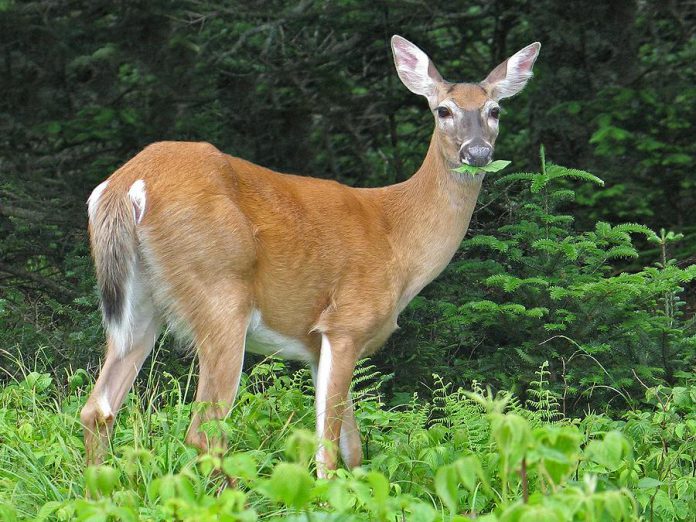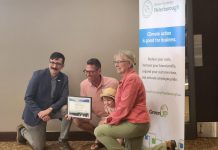
The Ministry of Natural Resources and Forestry (MNRF) is asking both hunters and other Ontario residents to report cases of sick or dead white-tailed deer, after Epizootic Hemorrhagic Disease (EHD) has been confirmed for the first time ever in Ontario.
EHD is an infectious and often fatal virus in white-tailed deer. Infected deer typically lose their appetite, lose their fear of people, grow weak, show excessive salivation, develop a rapid pulse and respiration rate, and show signs of fever.
Infected deer are often found dead in or near water bodies, as they try to rehydrate and submerse themselves water to reduce their body temperature.
The disease is spread through bites of midges of the genus Culicoides, commonly referred to as “no-see-ums”.
As the EHD virus is not known to cause illness in humans, there is no threat to public health.
For hunters, eating meat from EHD-infected deer is considered safe (if the deer are otherwise free from signs of sickness, ulcers, abscess, or other abnormalities). MNRF advises hunters to always practice proper carcass handling and processing techniques when dressing hunted deer.
The virus was discovered in two dead male deer on a property in London on September 12th. Last week, the Department of Natural Resources in Michigan also found EHD after testing a dead deer.
There is no known effective treatment for EHD in wild deer. The spread of the virus is mitigated with the appearance of frosts, which kill off the midges carrying the virus.
MNRF encourages the public to report cases of sick or dead deer by calling the Canadian Wildlife Health Cooperative at 1-866-673-4781, or by calling the Natural Resources Information Centre at 1-800-667-1940.


























